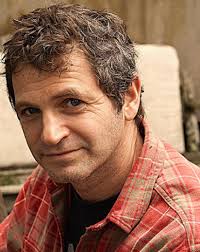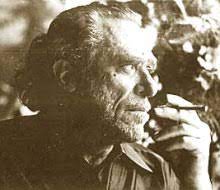Filling holes. Classical holes, yet. Not just any “dog-just-dug-it-up-in-showers-of-dirt” holes.
Every year or two I take on a behemoth that I haven’t read but should have read because so many better readers than me have and have been the better for it. Accomplishments on this list include The Brothers Karamazov (Dostoevsky), Don Quixote (Cervantes), and Moby-Dick (Melville).
In each case, they’re the type of books that people expect to find on your résumé and are surprised when they don’t. You are, after all, “well-read” (or at least rumor has it).
This year, as of yesterday, the intimidator of the moment is James Joyce’s Ulysses. I am not traveling alone, however. Per advice of better-read friends, I am reading a companion book at the same time: Harry Blamires’ The New Bloomsday Book.
The routine is this: Bloomsday Book about chapter you are about to begin, followed by same chapter in Joyce’s book. Kind of like Virgil walking you through Dante’s wine cellars.
Not that I’m any Joyce neophyte. I have read both Dubliners and Portrait of the Artist as a Young Man. I even see this web site (I would say “blog,” but they are hopelessly out of date) as an ongoing Portrait of the Poet as a Getting-On (I refuse to say “Old”) Man. So there’s that. But neither of those quite measures up to the reindeer games found in Ulysses.
The trouble with reading a “filling-a-hole” book? It pretty much clears the deck on your reading schedule for huge swaths of calendar. That’s because you’re scratching your chin and going, “Hmn” so much. Or rereading a curious paragraph or three. Or making a notation for future reference (that will never be referred to).
But that’s OK. Keep your eyes on the prize, because, when you reach Chapter the Last, it’s always worth it. You feel like you do coming out of church or donating blood. You know: that certain nobility of spirit. As if to say, “Yep. Uh-huh. That was me over there, chatting up Joyce like we were old pals.” (It helped that Jimmy couldn’t see who he was talking to, but….)
So cheer me on, why don’t you. And if you’re not filling any holes in your own reading résumé, ask yourself why not. Then pick a doorstop — any doorstop — and get reading! You don’t need Penelope to tell you that you’ll be the richer for it.







